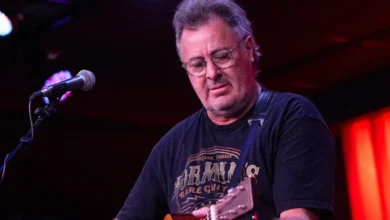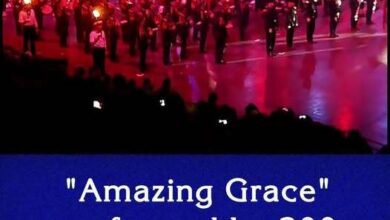Such an underappreciated artist! It would be amazing to witness Garth and Scotty perform this song together as a duet
“Seven Spanish Angels” stands as a remarkable work in the musical legacies of Willie Nelson and Ray Charles, illuminated by its profound storytelling and the artistry of its creators. Released in 1984, the song exemplifies the successful melding of country and soul, genres that, while distinct, share emotional undercurrents and a penchant for narrative depth. The track is deeply resonant, drawing listeners into a haunting tale of love and sacrifice set against a backdrop of violence, thus prompting reflection on the complexities of life and death.
The songwriting duo of Troy Seals and Eddie Setser skillfully crafted the narrative that unfolds within the song. It tells the story of two lovers facing dire consequences in a moment of intense conflict, underscoring how their love is both their strength and vulnerability. The vivid imagery portrayed in the lyrics offers a cinematic feel, inviting the listener to visualize the unfolding drama. The titular “seven Spanish angels” symbolize divine witnesses to the tragedy, framing the song as both a romantic and spiritual meditation on mortality and the afterlife.
Instrumentally, Willie Nelson’s contribution is significant. His guitar playing complements the lyrical story beautifully, adorned with his signature phrasing that resonates with authenticity. The fluidity of his playing underscores the emotional peaks within the story, enhancing the heartfelt lyrics. Nelson’s vocal delivery, marked by a rich, storytelling quality, harmonizes beautifully with Ray Charles’s robust and emotive singing style. Their combined vocal performance creates a dynamic interaction that elevates the song beyond mere entertainment into a moving experience for listeners.
The commercial success of “Seven Spanish Angels” is notable, as it climbed to the top of the country charts and resonated with a wide audience. This success is a testament to its powerful storytelling and the undeniable chemistry between Nelson and Charles. The duet not only captivated fans of country music but also broadened the appeal of both artists, inviting new listeners to explore their respective catalogs. Nelson, already an icon in country music, further solidified his legacy through this collaboration, illustrating the versatility and universality of his artistry.
The song has inspired numerous artists to provide their renditions, showcasing its lasting appeal throughout the decades. From contemporary country stars like Trisha Yearwood and Miranda Lambert to stalwarts like George Strait, myriad interpretations have emerged, each highlighting different facets of the song’s emotional core. These covers exemplify how a song can transcend its original context, allowing new artists to infuse it with their own styles while still honoring the essence of the narrative.
Criticism has been directed towards “Seven Spanish Angels,” particularly concerning its portrayal of violence. Critics argue that the song’s dramatic elements may inadvertently glorify gun culture and violence. However, many listeners and musicians view the song as a profound exploration of deeper themes, such as the human experience of love and loss. It invites a consideration of the complexities associated with choices made in desperate circumstances, allowing for a nuanced discussion about the implications of such storytelling.
Willie Nelson’s artistry is rooted in a career that spans over six decades. Born on April 29, 1933, in Abbott, Texas, he broke down barriers within country music and is recognized for his distinctive voice, innovative songwriting, and genre-blending abilities. Nelson’s songs frequently delve into themes of love, heartache, and existential reflection, resonating with audiences on a personal level. His influential impact on music is undeniable, characterized by his aim to remain true to his authentic self, which shines through in “Seven Spanish Angels.”
Similarly, Ray Charles, born on September 23, 1930, was a transformative figure in American music, known for his ability to convey deep emotion through his powerful voice. His innovative style, which melded gospel, blues, and jazz, set the stage for a new era in rhythm and blues. Charles’s influence extended far beyond his own genre, paving the way for future generations of musicians, including those in country music, to embrace emotional authenticity and cross-genre collaborations.
The union of Willie Nelson and Ray Charles on “Seven Spanish Angels” is a meeting of titans, showcasing the best of both artists while serving as a poignant reminder of the power of music to express universal themes of love and sorrow. Their collaboration not only highlights their individual strengths but also underscores the idea that music serves as a bridge, connecting diverse genres and audiences. In this way, “Seven Spanish Angels” stands not only as a significant hit but also as a testament to the enduring nature of storytelling in music, transcending time and cultural boundaries.





